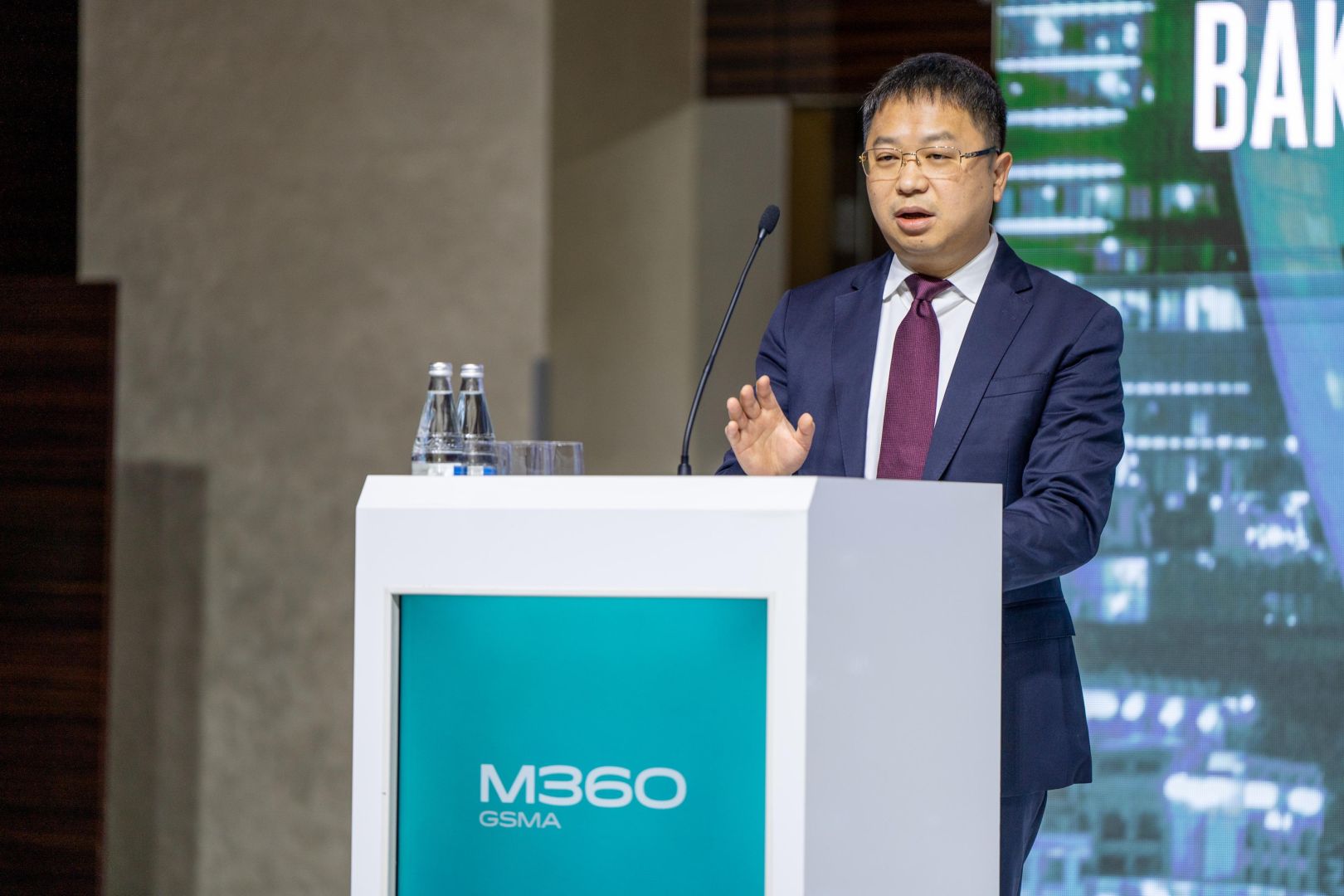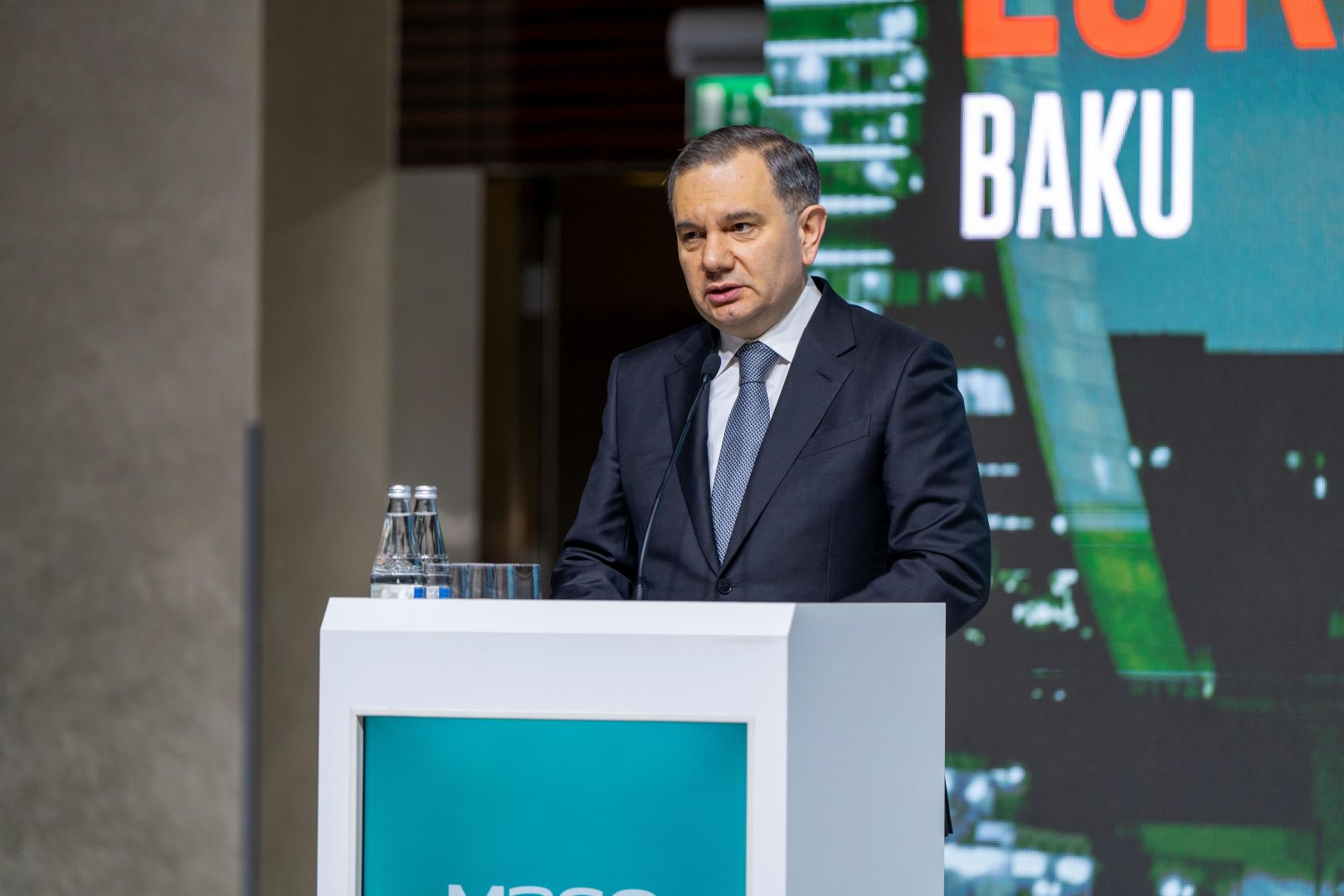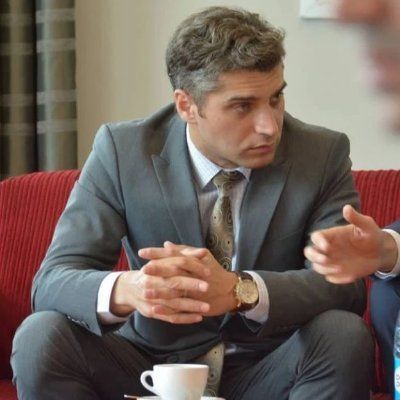Looking ahead to 2030, Huawei makes intelligent technology revolution

As the fourth industrial revolution is taking place in the human world, the era of intelligence is accelerating at a rapid pace. In the intelligent era, this promises huge changes to occur in the way human beings live, travel, work, and live.
However, the key is to make good use of smart technologies such as 5G, cloud, and AI. Nowadays, intelligent technologies such as 5G, cloud, and AI have achieved comprehensive and in-depth development. The rapidly spreading digital technological revolution is now demanding that countries around the world change and integrate into 5G without hesitation.
At the GSMA M360 Eurasia 2024 international conference held in Baku, the importance of artificial intelligence and industrial revolution, which challenges the world and is developing rapidly, was emphasised.
 Discussing the future of
digitalization and intelligence with regional leaders, leading
experts, regulators, heads of mobile operators, and IT corporations
from across the region, the conference focused on discussing
digital opportunities and accelerating the ongoing digital
transformation in the Commonwealth of Independent States (CIS) and
neighbouring regions.
Discussing the future of
digitalization and intelligence with regional leaders, leading
experts, regulators, heads of mobile operators, and IT corporations
from across the region, the conference focused on discussing
digital opportunities and accelerating the ongoing digital
transformation in the Commonwealth of Independent States (CIS) and
neighbouring regions.
Addressing the event, Chief Regulatory Officer for the GSMA, John Giusti, pointed out that Azerbaijan has become a regional leader in the field of technology. "Just 30 years ago, the first internet connections were established in Baku. Since then, the country has emerged as a regional leader in technology, innovation, and entrepreneurship."
In turn, President of Huawei Carrier Business Middle East and Central Asia Region Alex Xu said that Azerbaijan holds a strategic geographical position for implementing land transit projects spanning North-South and West-East directions.
"Azerbaijan currently holds prominent positions in numerous global rankings. The country's communication infrastructure is rapidly evolving. Azerbaijan is represented in the Council of the International Telecommunication Union (ITU); the country also has a representative in the Radio Regulations Committee of the ITU."
 Regional Director of the
International Telecommunication Union (ITU) for the Commonwealth of
Independent States (CIS) office Natalia Mochu noted that the latest
data indicates that 2.6 billion people remain without internet
access.
Regional Director of the
International Telecommunication Union (ITU) for the Commonwealth of
Independent States (CIS) office Natalia Mochu noted that the latest
data indicates that 2.6 billion people remain without internet
access.
"We often hear about the promising future of the digital economy. Our Secretary General highlighted at the Mobile World Congress that the digital economy has outpaced physical GDP growth by 2.5 times over the past decade."
Hearing all these thoughts and key notes leads to the conclusion that strengthening connections with the vision of building Giga City, starting 5G network construction, investing in 4G, increasing fibre speed and coverage, and cultivating new 5G business capabilities become vital and inevitable.
5G, cloud and AI: Key to Integrating smarter and Greener world
In our days, 5G, cloud, and AI are the keys to enabling a smart world. Given the challenges around the world, regions should embrace the trend, which promises operators to make great achievements.
In his remarks at the conference, President of Huawei Carrier Business Middle East and Central Asia Region Alex Xu underlined some requirements before integration into the smarter world with 5G system.
 “The top priority is to release
5G spectrum as soon as possible, preferably before 2025. Talent is
the key to implementing everything, and Huawei is willing to work
with all parties to cultivate,” Alex Xu said.
“The top priority is to release
5G spectrum as soon as possible, preferably before 2025. Talent is
the key to implementing everything, and Huawei is willing to work
with all parties to cultivate,” Alex Xu said.
According to him, Huawei, with its expertise, guarantees an improved quality of life, sustainable and green diets, and more comfortable living spaces.
He noted Huawei’s release of a report titled "Intelligent World 2030," which provides a systematic blueprint and description of eight future outlooks.
“Looking ahead to 2030, we believe the future will bring an improved quality of life, sustainable and green diets, and more comfortable living spaces.
We also anticipate the end of traffic congestion and pollution in cities, the widespread adoption of green energy, and a vast array of new digital services,” he said.
Huawei promises lower risk in human life and more power of connections
Now is the time to use human resources for more advantageous purposes. Technological shifting becomes more efficient and effective in order to reduce production risks. While mentioning this in his speech, Alex Xu drew attention to new robotic technologies.
“We envision robots taking over repetitive and dangerous tasks, allowing us to focus more on valuable, creative work and personal interests. That promises great demands for connectivity and computing technologies.
We estimated that by 2030, the total number of connections would reach 200bln, DoU reaching 400GB, Giga broadband penetration reaching 55%.
By 2030, 87% of enterprises’ spending will be on cloud, demanding tenfold general computing power, and 500 times AI computing power.
The technologies are ready. Each country could choose the most suitable approach to advancing forward,” he added.
Boosting digital and intelligent economy through leveraging 5G, cloud computing, and AI
As intelligent economy becomes the key engine of growth, driving adoption of intelligent technologies is essential. Besides, intelligent economy is becoming the key engine of growth.
During the event, the estimated growth in amount of intelligent economy for the next 6 years was highlighted. Along with it, the main tools for achieving a breakthrough in the field of intellectual technology were heard. Huawei President Alex Xu also underlined some target figures expected until 2030.
“It is estimated that the global digital and intelligent economy will account for 37.9% of the total economy by 2030, with an annual compound growth rate of 18% for the intelligent economy.
The most effective way of boosting digital and intelligent economy is leveraging intelligent technologies like 5G, cloud computing, and AI, which can significantly enhance digital productivity.”
Moreover, 5G has achieved widespread success and is evolving towards 5G-A. The number of 5G users exceeded 1.5 billion in just five years, a faster adoption rate than any previous generation. Currently, 5G accounts for 20% of connections and 40% of mobile revenue, significantly boosting data usage.
As mentioned at the conference, this year marks the first year of global commercialization for 5G-A, and it is expected more than 10 networks to go live in 2024. It's crucial not to hesitate in rolling out 5G in the region.
Meanwhile, AI is providing significant momentum for the development of cloud technology. Cloud computing has been developing for over a decade and has now gained widespread popularity. More and more economies consider the cloud as the core infrastructure for national digital transformation. For example, in Europe, 68% of public services have been migrated to the cloud.
Over the past two years, we have witnessed the emergence of massively large language models like ChatGPT. It is estimated that the parameters of these models increase tenfold each year, enhancing AI capabilities and accelerating AI applications.
Joint efforts can achieve better results
Thus, the GSMA M360 Eurasia 2024 conference held in Baku, sponsored by Azercell, one of the leading mobile operators, once again emphasized the importance of the joint initiative of all telecom companies in the step towards the development of intelligent technology.

Giving comprehensive insight on this, Alex Xu also noted at the conference that the most important and responsible steps in this direction fall on all telecom operators.
“Telecom operators has the responsibility in advancing intelligent technologies. Telecom companies have both the responsibility and advantage in advancing intelligent technologies.
Firstly, telecom companies operate on a large scale. In most countries, operators' total revenue accounts for 1% to 2.3% of GDP, and in smaller countries, this proportion can be even higher due to less competition from hyperscalers.
Secondly, telecom operators usually have unique advantages: they have the largest consumer and enterprise customer base, the most extensive and best ICT talent pool, the largest data volume, and the most extensive digital infrastructure.
For regional operators, there are three key areas to focus on to enhance leadership:
1) Enhance connectivity, particularly by prioritising 5G deployment.
2) Expand cloud services to lead the digital transformation of industries.
3) Explore AI to unlock new levels of productivity.
In a nutshell, the two-day GSMA M360 Eurasia 2024 conference in Baku once again brought to attention how important intellectual technology such as 5G, Cloud and AI are in our rapidly changing world.
5G, Cloud, and AI are the definitive pathways towards an intelligent era, bringing more opportunities and possibilities. The region should be part of these significant changes, with regional telecom operators playing a key role.
This advancement needs supportive regulatory policies, particularly regarding 5G spectrum allocation. Considering that many countries, including numerous emerging countries, have already begun large-scale 5G rollouts, it is recommended to allocate the 5G spectrum before 2025.
None of this progress can be achieved without talent. Huawei is committed to cultivating ICT talent with all stakeholders through programs like our ICT Academy.
And of course, it is only possible, together, to advance towards an intelligent world.
---
Follow us on Twitter @AzerNewsAz
Here we are to serve you with news right now. It does not cost much, but worth your attention.
Choose to support open, independent, quality journalism and subscribe on a monthly basis.
By subscribing to our online newspaper, you can have full digital access to all news, analysis, and much more.
You can also follow AzerNEWS on Twitter @AzerNewsAz or Facebook @AzerNewsNewspaper
Thank you!

